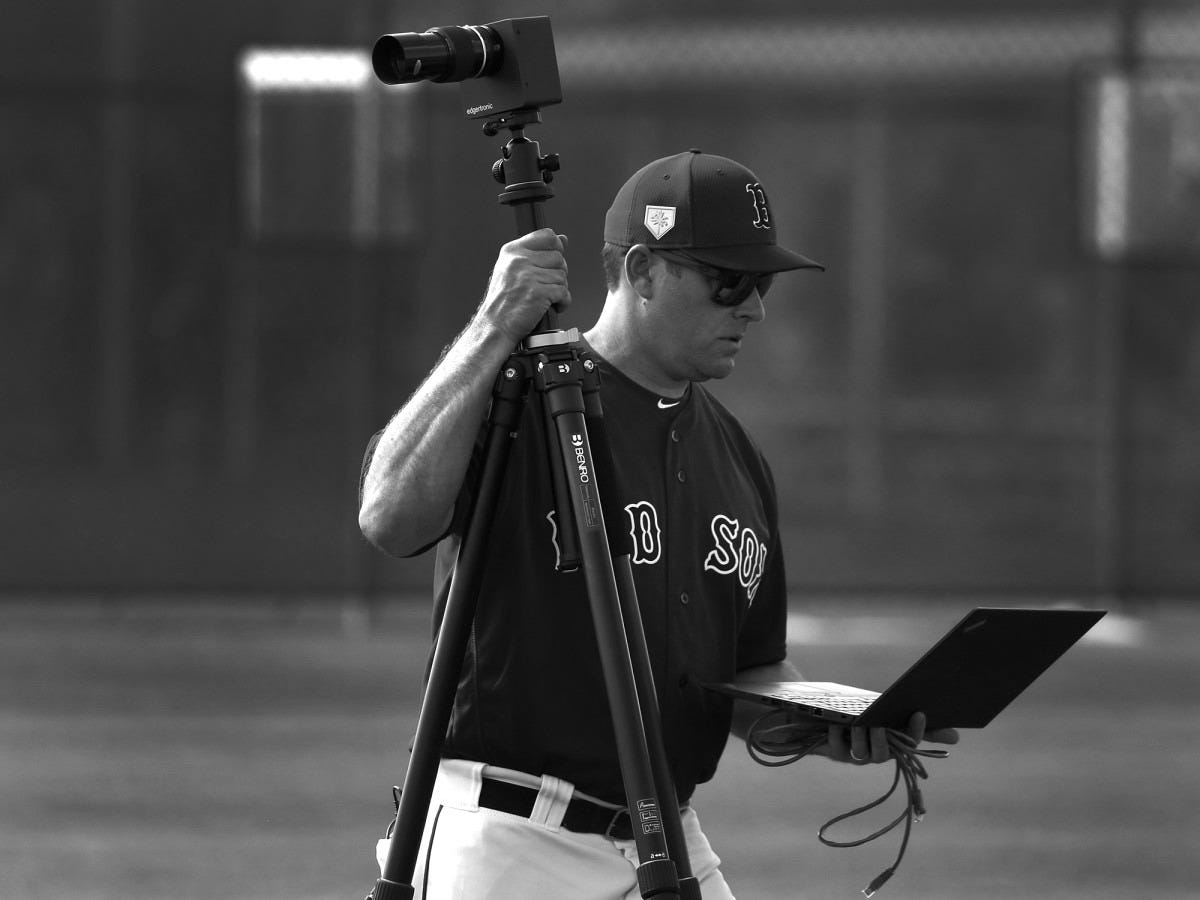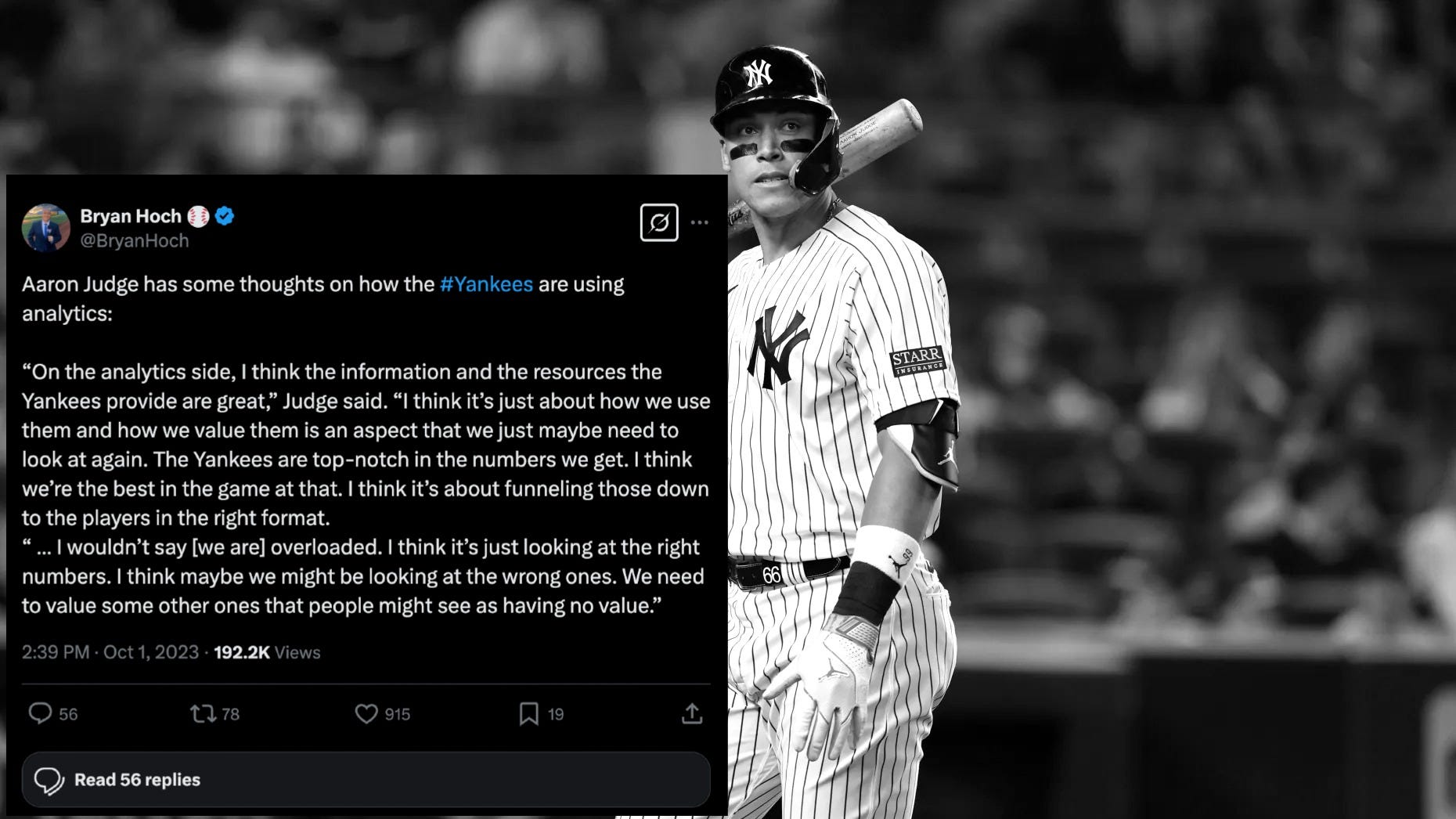Baseball Analytics: Revolution or Ruin?
Old-school baseball guys say, "nerds are ruining the game" — killing the fun, freedom, & spontaneity. Analytics enthusiasts claim these "meathead jocks" don't understand their own sport.
READ TIME: 4 MINUTES | WORDS: 825 Seymour Sarason, the father of community psychology, unknowingly foreshadowed this divide in his 1971 book The Culture of School and the Problem of Change, stating:
Outsiders tend to underestimate the complexity of the culture that they want to change.
Insiders instinctively resist change.
Creating a mutual ignorance that leads to a polarizing relationship
Sound familiar? Like jocks being skeptical of nerds who "never played the game."
But Sarason did find an approach for mending such a relationship:
Introducing an ideal go-between ⎯ someone embedded in the community and culture that the outsiders wish to change.
WHY IT MATTERS:
Fast-forward to 2023.
MIT researcher Adam Berinsky found that partisan groups tend to find one kind of messenger particularly credible:
the unlikely source.

In the baseball world, there is no source more unlikely than someone versed in advanced analytics who also spent time in uniform.
Former San Diego Padres Manager Andy Green plainly outlines the power of a "baseball guy" who’s also fluent in data:
Unless the message gets translated by a guy who speaks both languages [analytics and on-field baseball], it usually falls on deaf ears.
ZOOMING IN:
In true poetic baseball fashion, the power of combining Sarason's ideal go-between and Berinksy's unlikely source can be seen in a head-to-head matchup of the game's most historical rivalry: Boston Red Sox vs. New York Yankees.
➡︎ Red Sox | A Catalyst for Success
In 2015, the Red Sox hired Brian Bannister, a former MLB pitcher who retired in 2011, as a pro scout and analyst.
During Bannister's MLB career, he was documented as possibly the first active MLB player to openly adopt and incorporate the advanced statistics (sabermetrics) taking over baseball into his game.
That same year, Bannister crossed paths with aging big league pitcher Rich Hill.
At 35, Hill was finding it increasingly difficult to stick with an organization — making him the perfect amount of desperate to listen to someone like Bannister, who had an unconventional idea backed by spin rate data for a way Hill could reinvent himself as a valuable MLB pitcher.

Long story short: it worked.
After a couple of mid-August meetings with Bannister, Hill was starting for the Red Sox by early September.
Hill's first MLB start since 2009 began an epic four-game run to end the 2015 season:
Sep. 13 at Tamp Bay Rays: 7 innings, 10 strikeouts, 0 runs.
Sep. 20 at Toronto Blue Jays: 7 innings, 10 strikeouts, 3 runs.
Sep. 25 vs. Baltimore Orioles: 9 innings, 10 strikeouts, 0 runs.
Oct. 1 at New York Yankees: 6 innings, 6 strikeouts, 2 runs.
The following offseason, just a few months removed from meeting Bannister, Rich Hill signed a one-year contract with A's that topped his career total earnings to that point.
He then inked a three-year, $48 million deal with the Dodgers following the 2016 season.
Hill credits Bannister as the catalyst for late-career success:
[he] opened my eyes to the creative side of pitching...that was really the first time that I had heard anything about that.
The fact that this message came from someone who had been in his shoes made all the difference.
The catalyst effect from an ideal go-between/unlikely source combo like Bannister wasn't limited to individual player success.
By 2018, Bannister was vice president of pitching development and assistant pitching coach for the Red Sox as they defeated the Dodgers (and Rich Hill) in the World Series that year.
➡︎ Yankees | Lost in Translation
The 2023 Yankees recorded their worst season since 1992.
General manager Brian Cashman described the season as a "disaster," and the Yankees' analytics department became a central topic of discussion.
📌 Watch Brian Cashman describe the 2023 Yankees' "disaster" season.
This wasn't a new phenomenon.
Previous accusations suggested the team's heavy reliance on the analytics department was directly responsible for a string of questionable acquisitions that backfired.
Things started to boil over following the "disaster" season when Aaron Judge spoke publicly about the team's analytics.
Was there a problem with the actual number being provided?
Not according to the Yankees' captain:
BIG PICTURE:
There's an engineering term for the disproportionate difficulty of the final step in delivering network services to an end-user: the last mile.
While building a network can be relatively easy, the challenge comes at the very end when trying to get into houses and offices for people to actually use.
Baseball's last mile is the gap between the front office "nerds" and the dugout "jocks."
The ultimate frontier for baseball is communication.



